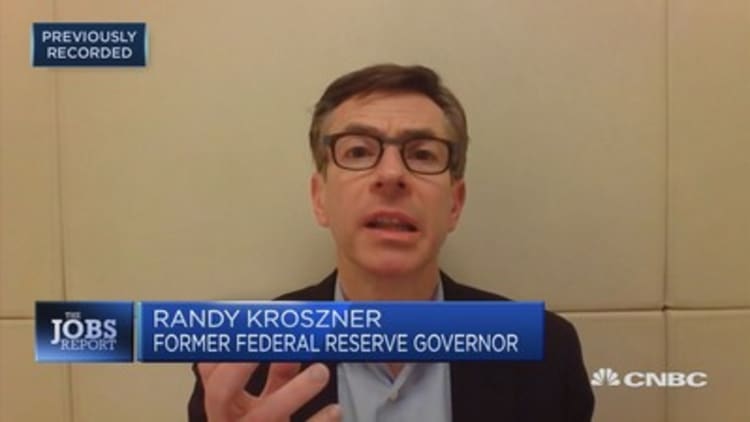Unprecedented levels of monetary stimulus cannot address underlying disruption to the global economy, according to former Federal Reserve Governor Randy Kroszner.
Central banks around the world have taken drastic action since the coronavirus pandemic began to force governments to shut down their economies in mid-March. The Fed has implemented rate cuts and a host of credit and lending programs that could inject more than $6 trillion into the American economy.
On Thursday, the European Central Bank announced a 600 billion euro ($672 billion) expansion to its Pandemic Emergency Purchase Programme (PEPP), bringing its total bond-buying effort to 1.35 trillion euros.
Kroszner told CNBC's "Squawk Box Europe" Friday that there is "only so much that the central banks can do."
"Central banks are extremely powerful but they can't cure the virus, they can't unlock economies, they can't replace broken supply chains," he said.
"The central banks can help to try to prevent a financial crisis, they can try to provide support as a bridge to a new equilibrium, but it is going to be a while to get to the new equilibrium and it is not going to be easy," Kroszner added.

Along with providing a sustained boost to global stock markets, central bank actions during the pandemic have also enabled governments to turn on the fiscal taps in a bid to shore up their economies and help ensure a recovery from the crisis.
Gilles Moëc, chief economist at AXA Investment Managers, told CNBC on Friday that while markets are "riding the wave" of stimulus and the reopening of economies, the underlying economic data that will indicate the quality of the recovery will not come until later in the year. However, he suggested that central bank action has played a key role in unshackling government spending.
"I think that monetary policy at this stage has very little impact on the real economy. The power of monetary policy lies in its capacity for making fiscal policy possible," Moëc said, adding that central bank action is welcome in creating space for governments to deploy stimulus.
He highlighted that aside from Germany, which this week agreed a 130 billion euro stimulus package, other European countries such as Spain and Italy had been more hesitant when it came to the size and scale of stimulus.
"If the ECB creates space so that non-German issuers can be comfortable with further stimulus packages, it's a very good thing," Moëc said.

